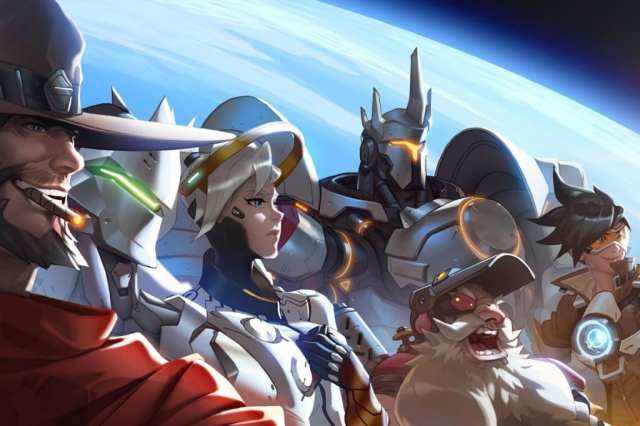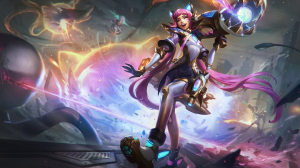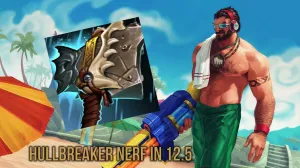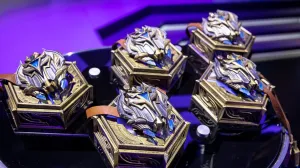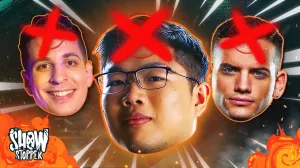Overwatch, Blizzard’s premier esports venture, recently celebrated its second anniversary. Unfortunately, something that has bothered players for the entirety of that time is the game’s matchmaking system. This is fairly telling in the game’s Competitive mode, which is considered the truest measure of skill for most of the game’s population.
It’s fairly common to encounter toxic players following a loss, gamers incessantly raging due to poor teammate performance. It’s also a given for a number of users to complain about matchmaking difficulties based on skill rating (SR). In some glaring examples, you could end up facing a full stack of six players even though it’s just you and a couple of friends plus three other randoms. In other cases, you could be matched up against players 1,000 SR above your own. For games with that disparity, you also have a higher chance to encounter leavers or people throwing matches. Confusion about how matchmaking works can lead to disappointment. Disappointments leads to frustration. Frustration leads to very angry gamers.

Looking for Group and Endorsements
Recently, it was announced that Overwatch will have a brand new LFG (Looking for Group) feature. This is something that the game has sorely needed. For the past couple of years, the only places you could look to build a team were unofficial outlets like forums, subreddits, or third-party sites. I recall browsing Reddit and listing my credentials as “being your shield.” Now, it’s as easy as players forming a party and setting up the specific roles they need.
Likewise, a new addition is the “endorsement” system, wherein you can promote the good-natured actions of fellow players. This could be from encountering those who display great sportsmanship. It could also be from tactical minds and those who can design amazing plays. Players with high endorsement levels are expected to get rewarded by Blizzard.
However, matchmaking still needs to be addressed. All the tools to improve the social atmosphere of the game would be all for naught if most people don’t know how it works. After all, the vast majority of Overwatch players are not members of professional esports teams endorsed by an energy drink or a clothing company. They aren’t going on impressive streaks like the Boston Uprising. They aren’t the Shanghai Dragons either, thankfully, who have an impressive streak of their own — for the wrong reasons. Most players are in it for fun, casual play. There will no doubt be some serious competitive engagement from time to time. This is when they will likely end up with strangers whom they might rage about, or those who might rage at them instead.
https://twitter.com/PlayOverwatch/status/1009526300963323904
Matchmaking Explained
With improving Overwatch’s social systems in mind, Scott Mercer, a member of the development team, explained in great detail what goes on under the hood. Mercer noted the reluctance among players when grouping up with total unknowns for Competitive. The aforementioned worries of toxicity and matchmaking woes would certainly lead to that mindset. Similarly, the uncertainty when it comes to your teammates’ dispositions and skill level would make anyone anxious.
Mercer also dispelled the common misconception that your SR takes a bigger hit with a group loss than when playing solo. That’s been something that’s bugged the minds of many Overwatch players especially when you consider that “grouped players have an advantage,” so I guess that means “losing should affect them more.” Well no, that’s an incorrect assumption. SR adjustments are based solely on the individual’s rating and not the average of the group.
Additional explanation was provided on how Overwatch’s matchmaking system tries its best to calculate a win percentage. If a team has an expected win rate below 40%, the match would not push through to prevent a lopsided result. Remember each time you’ve heard someone online say that they got absolutely dominated in a match and blamed the system for it? Well apparently, they still had an okay chance beforehand — just that the team’s execution was likely flawed.

Stats, Lots of Stats
Statistic information was also provided for group compositions per match, and their win rates:
- Only 16% of all games purely consisted of solo players.
- The most common match composition is 2,1,1,1,1 vs. 2,1,1,1,1, which represents 28% of the all matches.
- If you are in a full team of solo players, 73% of those matches were against another team of solo players and another 24% were against a 2,1,1,1,1 team composition. Only 3% of the enemy teams were groups of three or more players.
- If you’re in a duo, 74% of your matches are against other 2,1,1,1,1 teams, 14% against 1,1,1,1,1,1 teams, and 8% against 3,1,1,1 teams. Only 4% of the enemy teams you faced had groups of four players or more.
- If you’re in a full six-player group, 92% of your matches are against the combination of other six player groups; 5,1 teams; 4,2 teams; 3,3 teams; and 2,2,2 teams.
Guess which composition has the highest win rate? If it’s not too obvious, it’s a full six stack of grouped-up players. This is naturally because of communication among teammates trumping randoms who are just guessing what’s going on. However, it is worth noting that this win rate is but a mere 52.88% because individual skill and cohesion will always come into play. Meanwhile, the most common composition of “2,1,1,1,1” — two grouped players, four solo players — has a 50.03% win rate.
Improving Matchmaking and the Community
Overall, Mercer’s post gives valuable and detailed information on how Overwatch’s matchmaking system works. It’s well-received and it dispels the worries that many players have. He told the community to not worry about SR too much, just play and have fun. Likewise, life’s too short — it’s a waste to spend it being unkind to others.
Remember, Overwatch’s developers are heavily-invested into creating a player-friendly atmosphere. Stiff and fast-paced competition is a given, but it should never lead to toxicity and outright hate. Blizzard is part of The Fair Play Alliance, a collection of game dev companies that aims to craft a wonderful online experience for players. Remember, they already mentioned how toxicity delayed their game updates in the past. The next step is to provide honest information and make tools to improve the community and player behavior.
The introduction of the new LFG tool will definitely help in providing a faster way of grouping up and ensuring that you can look for teams that need you to fill the role you prefer. Hopefully, the introduction of endorsements will aid in fostering kinder and more helpful players.



